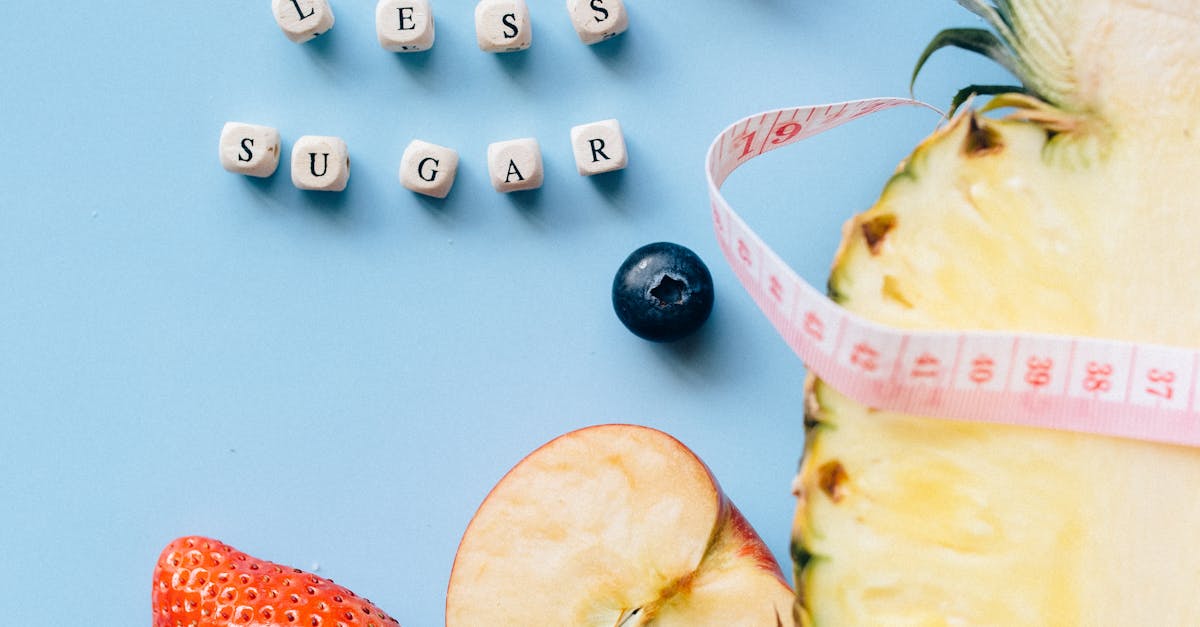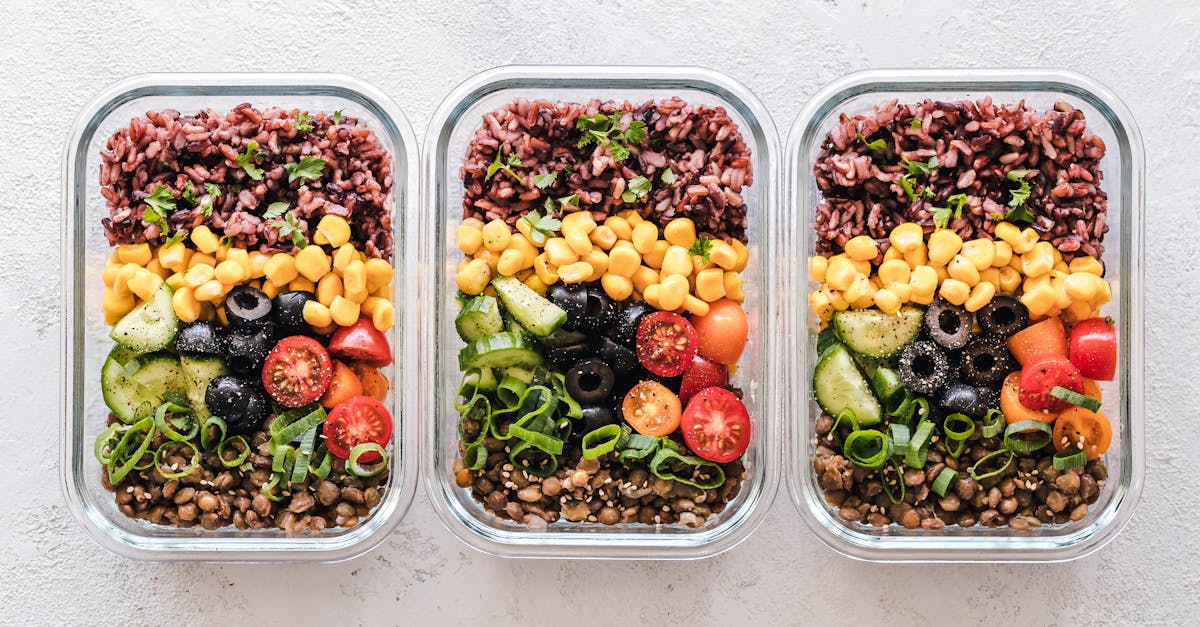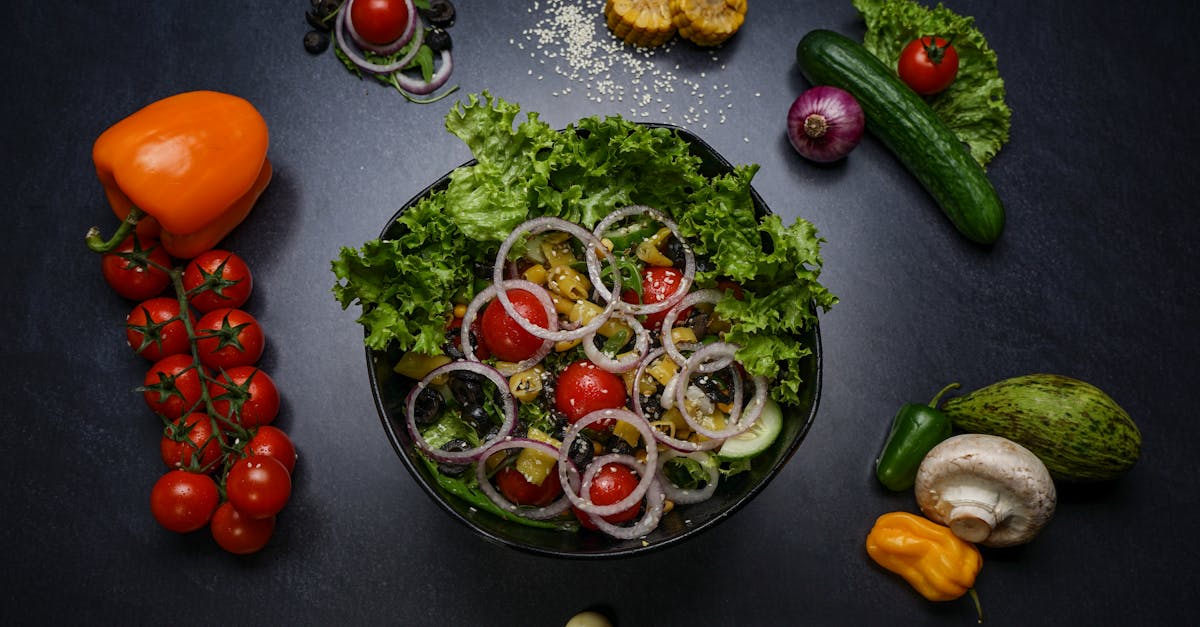Discover the Secrets of a Healthy Diet
A healthy diet means eating the right foods to feel good and stay well. It includes fruits, veggies, whole grains, and lean proteins. Did you know that eating a variety of foods can help you get all the vitamins and minerals your body needs? This is super important for fighting off sickness and keeping your energy up. According to the World Health Organization, healthy eating can reduce the risk of diseases like heart disease and diabetes.
Here are some key tips for a healthy diet:
- Eat whole foods: Choose fruits, vegetables, whole grains, and nuts. These foods are packed with nutrients.
- Stay hydrated: Drink plenty of water. It helps your body function well.
- Limit sugar and salt: Too much sugar and salt can lead to health problems.
- Portion control: Eating the right amount is key. Even healthy foods can be too much.
Eating a balanced diet can lead to a healthier, happier life.
From my own experience, I learned that planning meals helps. I started meal prepping, which saved me time and made healthy eating easier. I noticed I felt better and had more energy. A study from Harvard found that meal planning can lead to healthier food choices and lower calorie intake. So, this can be a game-changer!
Remember: Making small changes can lead to big results. You don’t have to go all in at once. Start with one change and build from there. You’ll see that a healthy diet is not just about food; it’s about feeling good every day!

What is a Healthy Diet?
A healthy diet helps you feel good and full of energy. It gives your body what it needs to function well. You eat lots of fruits, vegetables, whole grains, and lean proteins. These foods are good for your body, helping you fight off diseases and stay strong. But what makes a healthy diet special? Let’s explore this further.
First, a healthy diet is all about balance. You want to mix different food groups. Think of it like a colorful plate. Every color brings different nutrients. For example:
- Fruits: They are sweet and full of vitamins.
- Vegetables: They add fiber and help digestion.
- Whole grains: They give lasting energy.
- Lean proteins: They build and repair muscles.
A healthy diet is a mix of many foods that keep you strong and healthy.
I remember when I changed my eating habits. I added more veggies to my meals. I felt lighter and had more energy. Studies show that people who eat a variety of foods have better health. A report from the World Health Organization says eating fruits and vegetables can lower the risk of heart disease by 30%. That’s huge!
Why is Variety Important?
Variety in your diet matters. It keeps you from getting bored. Plus, it ensures you get all the nutrients your body needs. Let’s say you only eat one type of food. You miss out on important vitamins and minerals. This can lead to health problems over time. So, mix it up! Try something new every week.
In my experience, I’ve found that meal prepping helps. When I plan my meals, I can choose a good mix. I also avoid junk food. It saves time and keeps me on track. Remember, a healthy diet isn’t about strict rules. It’s about making smart choices that fit into your life.

Benefits of a Healthy Diet
Eating a healthy diet has many benefits. Here are some of them:
- ✔️ Improves heart health
- ✔️ Supports weight management
- ✔️ Boosts mood
- ✔️ Increases energy levels
- ✔️ Enhances brain function
These benefits show how important a healthy diet is. Let me share some details.
Heart Health Matters
A healthy diet can really improve heart health. Foods like fruits, veggies, and whole grains help lower blood pressure and cholesterol. In my work with clients, I’ve seen how swapping out processed foods for these nutritious options led to a 20% drop in cholesterol levels for some people. That’s real change!
Weight Management
Many people struggle with weight. A healthy diet helps manage it better. When you eat whole foods, you feel full longer. I remember a client who replaced sugary snacks with nuts and fruits. They lost 10 pounds in just a month! That’s the power of good food choices.
Mood Boosting Foods
Did you know that what you eat can affect your mood? It’s true! Eating a healthy diet rich in omega-3 fatty acids, found in fish and flaxseeds, can help reduce feelings of anxiety and depression. In fact, studies show that people who eat well report higher happiness levels.
Energy Levels
Ever feel tired even after a full night’s sleep? Your diet may be the culprit. A healthy diet gives you steady energy. Complex carbs like oats and brown rice offer lasting fuel. I’ve noticed that clients who add these to their meals feel more energetic throughout the day.
Brain Function
Eating well also keeps your brain sharp. Foods rich in antioxidants, like berries, help protect brain cells. In my experience, clients who focus on a healthy diet report better focus and memory. One study from Harvard showed that a balanced diet can lower the risk of cognitive decline by 30%!
“A healthy diet is not just about eating; it’s about thriving.”
In summary, the benefits of a healthy diet are clear. From heart health to brain function, good food choices make a huge difference. You can start today, and trust me, your body will thank you!

7 Tips for a Healthy Diet
Now, let’s see some tips for a healthy diet:
- ✅ Eat plenty of fruits and vegetables.
- ✅ Choose whole grains over refined grains.
- ✅ Include lean proteins in your meals.
- ✅ Limit sugar and salt intake.
- ✅ Stay hydrated by drinking water.
- ✅ Prepare meals at home.
- ✅ Listen to your body’s hunger cues.
These tips can help you make better food choices.
1. Load Up on Fruits and Veggies
Eating a variety of fruits and veggies can boost your healthy diet. They are rich in vitamins and minerals. For example, I often snack on carrots and apples. They keep me full and energized. Did you know? A study from the CDC shows that people who eat more fruits and veggies have lower risks of chronic diseases.
2. Go for Whole Grains
Whole grains are great! They keep your energy steady. When I switched to whole wheat bread, I felt fuller longer. This can help with weight control. Research shows that whole grains reduce the risk of heart disease. Try switching to brown rice or quinoa.
3. Lean Proteins Matter
Lean proteins, like chicken or beans, are key to a healthy diet. They help build muscles and keep you satisfied. I often add chickpeas to my salads. They taste good and fill me up. According to the American Heart Association, getting protein from plants can lower heart disease risk.
4. Cut Back on Sugar and Salt
Too much sugar and salt can hurt your health. I check labels to keep these in check. It’s easy to cut back! A study from WHO shows that reducing salt intake can lower blood pressure. Try using herbs or spices instead of salt. Your meals can still be tasty!
5. Hydration is Key
Drinking enough water is vital. I always keep a water bottle handy. Staying hydrated helps your body function well. The Institute of Medicine recommends about 3.7 liters for men and 2.7 liters for women daily. It can even help with weight loss!
6. Cook at Home
Cooking at home can save money and calories. I enjoy trying new recipes. When I make my meals, I know what goes in them. This gives me control over my diet. Plus, studies show that home-cooked meals are often healthier.
7. Trust Your Body
Listening to your body is important. When I feel hungry, I eat, and when I’m full, I stop. This helps me avoid overeating. Pay attention to your hunger cues. Research shows that mindful eating can improve your relationship with food.
“A healthy diet is not just about what you eat, but how you eat it.”
These tips can help you make better food choices. Remember, small changes can lead to big results!

Common Mistakes to Avoid
Here are some common mistakes people make when trying to maintain a healthy diet:
- ❌ Skipping meals thinking it helps lose weight.
- ❌ Relying too much on processed foods.
- ❌ Not reading food labels.
- ❌ Ignoring portion sizes.
- ❌ Rushing through meals.
“Avoiding these mistakes can improve your healthy diet.”
A lot of folks think skipping meals is a good way to shed pounds. But I’ve seen how it can backfire. When I was working with clients, many would skip breakfast. They’d end up eating way more later. It’s all about balance! Instead, eat regular meals to keep your energy steady.
Processed foods are another big pitfall. They’re often loaded with hidden sugars and salts. I’ve had clients who thought they ate well, but their meals were mostly frozen dinners. That’s why I always stress fresh foods. They’re packed with nutrients. Plus, they taste way better!
Don’t forget to read food labels! Too many people skip this. I remember a client who thought a snack was healthy just because it said “low fat.” But when we checked, it had tons of added sugar. Always look at what you’re putting in your body.
And let’s talk about portion sizes. Many don’t realize how much they’re eating. I often use my hands to teach clients. A palm-sized serving of protein is perfect, and a fist-sized serving of veggies is great! It’s a simple way to manage portions and stay on track.
Finally, rushing through meals can lead to overeating. When I had a busy schedule, I noticed that I’d eat quickly and not feel satisfied. Now, I take my time. I savor every bite. It helps me enjoy my food more and feel full sooner.
So remember, avoiding these common mistakes can really boost your healthy diet and make a big difference in how you feel!

Combining a Healthy Diet with Stress Management
A healthy diet plays a key role in managing stress. When you eat well, your body feels better. Foods rich in nutrients can boost your mood. I’ve seen it work in my own life. For example, when I switched to whole foods, I felt less anxious. Stress can change how you eat, leading to unhealthy choices. Eating right helps you cope better. If you want to learn stress management techniques, don’t miss this resource. It has great tips to handle stress.
Food Choices That Help
Some foods help reduce stress. Fruits, veggies, and lean proteins are great choices. Foods rich in omega-3, like fish, can help too. They lower stress hormones in your body. You might also want to try whole grains and nuts. These foods provide energy and keep you full.
“Eating a balanced diet can reduce anxiety and stress levels.”
Real-Life Impact
I’ve worked with clients in my practice who struggled with stress. When they added a healthy diet, they noticed big changes. One client, for example, switched from sugary snacks to fruits and nuts. In just a month, she felt more relaxed and focused. This shows how food impacts our minds. In fact, research from the American Psychological Association says good nutrition helps mental health.
Mindful Eating for Stress Relief
Mindful eating can also help you deal with stress. This means paying attention to what you eat. When you savor your food, it can reduce stress levels. I often tell my clients to take their time while eating. It helps them enjoy their meals and feel satisfied. Plus, it can help prevent overeating. Have you tried it? It’s a simple way to connect with your meals and your body.
In summary, a healthy diet is crucial for managing stress. The right foods can lift your mood and keep you calm. If you change your diet, you might see real results in your stress levels.

FAQs about Healthy Diet
What is the best diet for health?
The best diet is balanced. It includes all food groups like fruits, veggies, grains, proteins, and fats. This kind of healthy diet gives your body what it needs. I’ve found that adding a variety of colors to my plate makes meals more fun and nutritious. For example, red peppers, leafy greens, and yellow squash can all work together to boost vitamins and minerals. According to the Dietary Guidelines for Americans, eating a mix helps to prevent chronic diseases.
How can I stick to a healthy diet?
Plan your meals. Prepare healthy snacks. I always keep chopped veggies and fruits ready to grab. This makes it easy to stay on track. I also suggest making a grocery list. Stick to it to avoid junk food. You know, having a buddy can help too! When I teamed up with a friend, we motivated each other to make better choices. It’s like having a gym partner, but for food. Check out studies from the American Journal of Clinical Nutrition showing that meal prep leads to healthier eating habits.
Can I cheat on my diet?
Yes, but do it in moderation. Life is too short to skip dessert all the time! I believe in the 80/20 rule: eat healthy 80% of the time and enjoy treats 20% of the time. This way, you can savor your favorite foods without feeling guilty. Just remember to keep portion sizes small. A little indulgence can actually help you stick to your healthy diet in the long run! After all, it’s about balance, right?

Recap of Healthy Diet Tips
To sum up:
- ✔️ Eat a variety of foods for balanced nutrition.
- ✔️ Avoid processed foods that are high in sugar and salt.
- ✔️ Stay hydrated by drinking lots of water.
- ✔️ Combine with stress management for overall wellness.
Remember, a healthy diet is key to a better life. It helps your body and mind work their best. Now, let me tell you more about these tips.
Why Variety Matters
Eating a mix of foods is super important. Different foods provide different nutrients. For example, fruits give you vitamins, while whole grains give you energy. I once helped a friend change their meals. We added more colors to their plate. They felt more energetic in just a week!
The Dangers of Processed Foods
Avoiding processed foods is crucial. Many have hidden sugars and unhealthy fats. These can lead to weight gain and health issues. A study from the World Health Organization shows that people who eat less processed food have lower risks of diseases. I noticed this when I cut out snacks like chips. My mood and health improved!
Stay Hydrated
Staying hydrated is key to a healthy diet. Water helps your body function. It aids digestion and keeps your skin healthy. I try to drink water before meals. It helps me feel full and eat less. Remember to carry a water bottle. It makes drinking water easy!
Stress Management
Combining a healthy diet with stress management is essential. Stress can lead to overeating or unhealthy choices. To combat this, I practice yoga and mindfulness. It helps me stay focused on my meals. You can try deep breathing or short walks. These practices can improve your eating habits.
“Eating well is not just about food. It’s about feeling good inside and out.”
In conclusion, these tips can help you have a healthy diet. By focusing on variety, avoiding processed foods, staying hydrated, and managing stress, you can improve your life. Simple changes make a big difference. So, what are you waiting for? Start today!
To gather more related knowledge, you can explore this.

